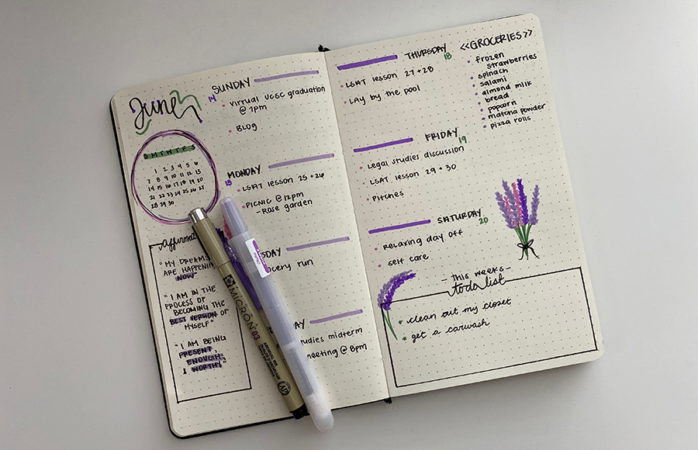
Welcome to 'Unlock Your Subconscious: Creating Your Dream Journal,' where we explore the intriguing realm of dreams and provide evidence-based techniques to tap into your subconscious mind.
By positioning a dream journal by your bed and meticulously recording your dreams upon waking, you can unlock a wealth of insight and self-discovery.
With a focus on detailed descriptions, dream analysis, and identifying recurring patterns, this article will guide you on a liberating journey towards understanding and harnessing the power of your dreams.
Positioning the Dream Journal by Your Bed
One key step in creating your dream journal is to position it by your bed for easy access and immediate recording of your dreams upon waking. By keeping your dream journal within arm's reach, you can capture the details of your dreams while they are still fresh in your mind.
This simple act of proximity has several benefits. Firstly, it ensures that you don't forget your dreams as you navigate the transition from sleep to wakefulness. Secondly, it allows you to jot down key elements and emotions without delay, preserving the integrity of the dream experience. Lastly, having the dream journal nearby serves as a visual reminder of your commitment to exploring your subconscious and encourages consistent journaling.
Writing Contents Immediately Upon Waking
Record your dreams in your dream journal immediately upon waking to capture the most vivid details and emotions. This practice is crucial for improving dream recall and maximizing the benefits of journaling.
When we wake up, our dreams are still fresh in our minds, and by recording them immediately, we ensure that we don't forget any crucial details.

The act of writing down our dreams helps us to solidify and make sense of our subconscious experiences. Studies have shown that regular dream journaling can lead to an increased ability to recall dreams, as well as a greater understanding of our own thoughts, emotions, and desires.
Providing Detailed Descriptions of Your Dreams
By delving into the intricate details and vivid imagery of your dreams, you can provide a comprehensive and nuanced description of your subconscious experiences. This level of detail is crucial for unlocking the true potential of your dream journal.
Here are some techniques to help you provide detailed descriptions of your dreams:
- Use sensory language: Describe the sights, sounds, smells, tastes, and textures you experienced in your dream.
- Include emotions: Capture the range of emotions you felt during the dream, from fear and excitement to joy and curiosity.
- Note the setting: Describe the location and atmosphere of your dream, whether it was a familiar place or a fantastical landscape.
- Document characters: Provide descriptions of the people or creatures you encountered in your dream, including their appearance and behavior.
By incorporating these techniques, you will be able to vividly recreate your dreams and gain a deeper understanding of your subconscious mind.
This process not only enhances your dream journal but also allows you to tap into the benefits of dream journaling, such as improved self-awareness, problem-solving abilities, and creativity.
Analyzing Dream Contents
Effectively analyzing dream contents is crucial for gaining valuable insights into the hidden meanings and symbols that reside within the realm of one's subconscious mind. Dreams are often rich in symbolism and can provide a deeper understanding of our emotions, desires, and fears. Symbolic interpretations involve decoding the meaning behind the various images, objects, and actions that occur in dreams. This process requires careful observation and reflection, as symbols can have personal and cultural significance.
Emotional analysis, on the other hand, involves examining the feelings experienced during the dream. Emotions can serve as a guide to understanding the dream's underlying message and can reveal unresolved issues or unexpressed emotions.

Identifying Recurring Patterns and Reviewing Earlier Entries
A thorough examination of one's dream journal will reveal the frequency and significance of recurring patterns and allow for a comprehensive review of earlier entries. Understanding symbolism and interpreting dream emotions are crucial aspects of this process. By analyzing the symbols and emotions in our dreams, we can gain insights into our subconscious mind and uncover hidden meanings.
Here are two sub-lists that can aid in the identification and interpretation of recurring patterns:
Understanding symbolism:
- Pay attention to recurring symbols or objects in your dreams. These may hold personal or universal meanings.
- Consider the context in which these symbols appear. The setting, people, and actions can provide additional clues to their significance.
Interpreting dream emotions:
- Take note of the emotions you experience in your dreams. Emotions often serve as indicators of unresolved issues or desires.
- Reflect on the possible connections between your waking life experiences and the emotions felt in your dreams. This can help identify patterns and themes.
Frequently Asked Questions
Can I Use a Digital Dream Journal Instead of a Physical One?
Yes, using a digital dream journal can be just as effective as a physical one. It offers convenience, accessibility, and the ability to easily search and organize entries. The benefits of dream journaling remain the same, regardless of the format used.
How Often Should I Write in My Dream Journal?
Analyzing dream symbols and recording them in a dream journal can provide valuable insights into your subconscious mind. To fully benefit from dream journaling, it is recommended to write in your journal regularly, ideally every morning after waking up.
Is It Necessary to Write Down Every Single Dream I Have?
It is not necessary to write down every single dream you have, but keeping a dream journal can provide various benefits such as improved dream recall, self-reflection, and better understanding of the subconscious mind. There are alternative dream journal methods available to suit individual preferences.

What Should I Do if I Can't Remember My Dreams Upon Waking Up?
To improve dream recall, try techniques such as setting an intention before sleep, keeping a regular sleep schedule, and practicing relaxation exercises. Keeping a dream journal can be beneficial for enhancing dream recall and gaining insights into your subconscious mind.
Can Analyzing My Dreams Help Me Understand My Subconscious Mind Better?
Analyzing dreams can provide insights into the subconscious mind by interpreting dream symbols and understanding the role of emotions in dreams. This practice helps individuals gain a deeper understanding of themselves and their desires.
 Writing TipsCreative WritingJournalingSketching TechniquesBuying GuidesPrivacy PolicyTerms And Conditions
Writing TipsCreative WritingJournalingSketching TechniquesBuying GuidesPrivacy PolicyTerms And Conditions
